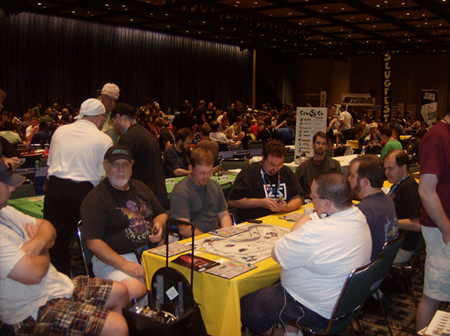I read a lot of geeky books. And I don’t just mean science fiction and fantasy, I mean books that make even many normal geeks raise an eyebrow at my choices, such as books on game theory, economics and business, philosophy, and so on … things that have nary a laser rifle or robot or sword or sorcerer in sight. Right now, I’m reading Free: The Future of a Radical Price by Chris Anderson, editor in chief of Wired magazine. (An abridged audiobook version is available for free.)
It seems like when I read these books, the principles they espouse often show up all over the place, and that’s certainly happening at GenCon. In fact, the principles of “free” described by Anderson have always, in some form, been at the heart of every industry of sales. (Early on in the book, he explains how free cookbooks made the failing Jell-O company thrive.) And the gaming industry is no different.
For example, many roleplaying games have for years offered free little booklets that allow you to get started with a game, try it out in a limited way, and see if you enjoy it before you invest dollars and hours into playing it. But the problem is that these books were not actually free. There was a trade-off, because the publishers still had to actually print out the booklets and distribute them and so on. There was a cost to this, so it wasn’t just that they wanted to make money – if the gambit didn’t work, they were actually out money! Now, with the online world, PDF versions of books can be distributed (virtually) free of cost! That’s how Black Gate is able to offer reviews and commentary for free through these online blogs, for example.
Many of the gaming companies at GenCon have also embraced “free,” such as Hero Mages, an online board/strategy game that is completely free to play, but which allows players to pay a price to access certain premium characters and options (such as the ability to create and save your own map designs). (Anderson calls this business model a “freemium” model, where a portion of the users spend money for upgrades, which supports the site for everyone.)
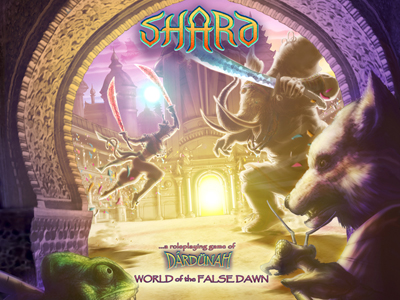
Another company that is brilliantly using “free” as a means of promotion is Shard Studios, who have created the Shard RPG. This game is based on the Hindu mythology of India and allows you to play a number of animal-based races. The setting doesn’t have any metal, but their weapons and equipment are built from gems of various types that can be used to power magical items, such as flying airships, or forged into weapons (such as the swords in the pictures above) with different properties. The books are beautiful and the setting is truly enthralling … it is one of a handful of games that I left GenCon knowing I would definitely want to try out by running a full game with.
How is Shard using “free”? Well, on their website, if you go to “The Game” link you can choose to download a “Welcome Booklet.” This booklet contains the entire game mechanics of the system, setting information, some introductory character templates, and so on. It is essentially the bulk of the main core rulebook … except for character creation, for which you need to buy the actual book. But, by checking out the Welcome Booklet, you can be sure that you really want the game before you shell out the money for the entire set of rules. And, if you just want to play the game and never create a character, I suppose you could even do that (although, as most gamers know, character creation is one of the most fun aspects of any game).
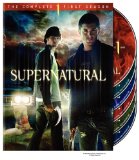 If you haven’t been watching Supernatural, then I can completely sympathize. I actually didn’t start watching the show until halfway through season two, mainly because I didn’t care to watch a series that was nothing more than a mindless monster hunting show.
If you haven’t been watching Supernatural, then I can completely sympathize. I actually didn’t start watching the show until halfway through season two, mainly because I didn’t care to watch a series that was nothing more than a mindless monster hunting show. Many of my contemporaries believed that one of the most amazing comic book series ever was Neil Gaiman’s The Sandman, which ran from 1989 through 1996 – formative teenage years for me and my peers – originally by DC Comics and (from issue #47) under their Vertigo imprint. Now it looks like The Sandman has been re-optioned for consideration as a television series. Though the series creator isn’t associated with the show, there’s still reason to be hopeful.
Many of my contemporaries believed that one of the most amazing comic book series ever was Neil Gaiman’s The Sandman, which ran from 1989 through 1996 – formative teenage years for me and my peers – originally by DC Comics and (from issue #47) under their Vertigo imprint. Now it looks like The Sandman has been re-optioned for consideration as a television series. Though the series creator isn’t associated with the show, there’s still reason to be hopeful.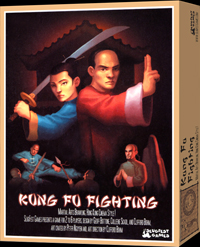 Now that Gen Con is done, it’s time to offer up some final thoughts, experiences, and, of course, games.
Now that Gen Con is done, it’s time to offer up some final thoughts, experiences, and, of course, games.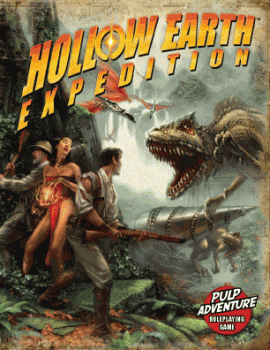 Pulp Adventure Roleplaying Games
Pulp Adventure Roleplaying Games


 After a hectic morning, my wife and I finally made the 45-minute drive into Indianapolis with our littlest, 8.5-month old Gideon. (The elder, 5-year old Elijah, will be joining us tomorrow.) Parking was crazy, but we found a spot finally and made our trek over to the convention center that is the home to Gen Con, the best four days in gamig (
After a hectic morning, my wife and I finally made the 45-minute drive into Indianapolis with our littlest, 8.5-month old Gideon. (The elder, 5-year old Elijah, will be joining us tomorrow.) Parking was crazy, but we found a spot finally and made our trek over to the convention center that is the home to Gen Con, the best four days in gamig (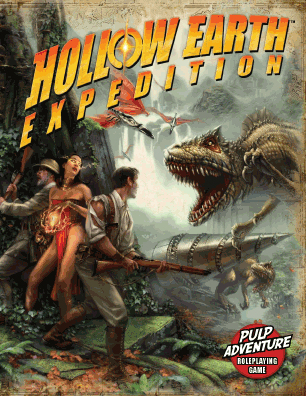 It’s that time of year again, when I’ll be slipping into full-on geek mode (as if I ever slip out of geek mode, of course) and reporting on this blog from
It’s that time of year again, when I’ll be slipping into full-on geek mode (as if I ever slip out of geek mode, of course) and reporting on this blog from 
